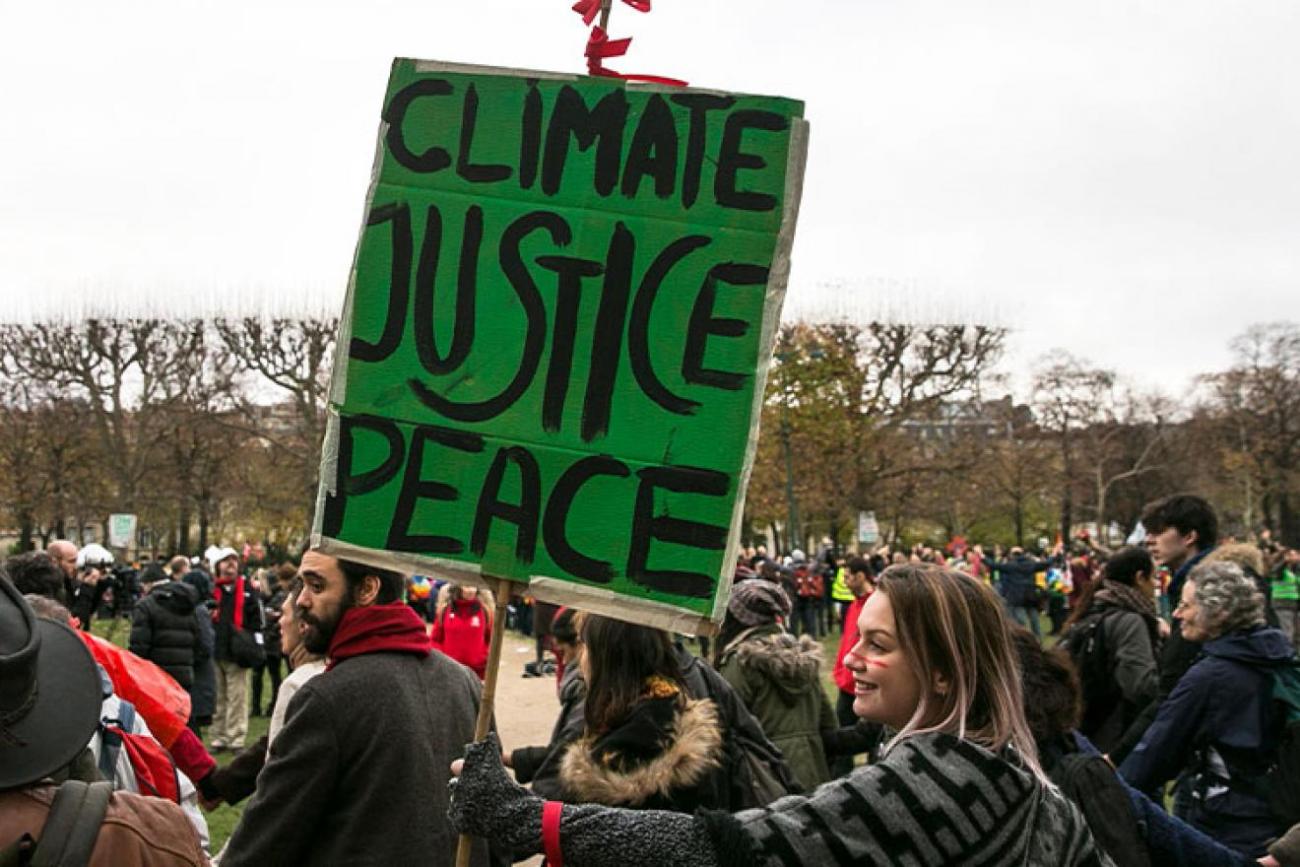Fact sheet unpacks and links human rights and climate change

A new publication sets out in comprehensive terms, the links between climate change and human rights violations.
“Frequently asked questions on human rights and climate change” takes a deep dive into the subject, showing the links between problems caused by worsening climactic factors, and violations of rights, such as the rights to life, culture, housing and food. Human Rights Officer Ben Schachter leads UN Human Rights Office work on the issue. Here he answers some questions about the publication and the importance of linking human rights and climate change.
Let’s start with a little background on the fact sheet. What’s it genesis and why now for it to come out?
The fact sheet originates with and builds on the work of the Office in relation to its engagement at UN Framework Convention on Climate Change (UNFCCC) COP21. This was the first time that the Office brought its work on human rights and climate change to the COP in order to promote rights-based climate action and the integration of human rights in the Paris Agreement. OHCHR’s work on human rights and climate change has since increased exponentially. By 2020, the fact sheet had grown to encompass this large body of work on human rights and climate change and the need for it was clear. We are thrilled to have launched the FAQ in 2021 as part of our continuing push for more ambitious, rights-based climate commitments under the Paris Agreement.
What makes climate change a human rights issue?
Under international human rights law, States have an obligation to respect, protect and fulfil human rights for all people. This includes an obligation to protect people from foreseeable harm. The harms caused by climate change are not just foreseeable, they are ever present and overwhelming. As we speak, climate change is eroding the rights to health, life, culture, housing, food, water and sanitation, among others, on an unimaginable scale. It is, quite simply, unforgivable that humanity continues to perpetuate these preventable harms upon itself. States have a duty to protect people against these harms and businesses have a responsibility as well. Under human rights law, immediate action is required to mitigate greenhouse gas emissions and ensure that all people have the necessary means to adapt to climate change.
Some say that the link between climate change and human rights is difficult to recognize. Does this fact sheet make this link clearer?
For those directly experiencing the adverse effects of climate change, like the inhabitants of low-lying islands whose villages are literally being reclaimed by the rising tides, the links could not be more clear. However, both climate change and human rights are still abstract concepts to many people. The fact sheet unpacks those concepts and explores the nexus between them. We outline the causes and adverse effects of climate change – for which there is indisputable scientific evidence. We then link those adverse effects to human rights harms and the corresponding obligations of States and businesses to address them. For example, making the link between temperature increases and droughts related to climate change and the right to food in a clear way.
What do you hope readers take away from the fact sheet?
We hope this fact sheet will empower people to claim their human rights and serve as a guide for States and businesses seeking to take rights-based climate action. We also hope to support the growing movement for climate justice. It is morally reprehensible that the poorest countries and people are bearing the brunt of climate change impacts even though they have little to nothing to do with causing it. We hope we have made it clear that we must have action founded in equity and solidarity to address this injustice. Finally, we want this fact sheet to give hope to current and future generations by illustrating replicable, concrete applications of human rights law that can help safeguard the future of humanity including in the context of climate litigation.
And the main message of the fact sheet?
Climate change is deadly and destructive, it is caused by people and it must be stopped by people. People are dying, getting sick, suffering hunger and thirst, losing their homes and cultural identities because of climate change. We can still make a difference. We can minimize future harms and remedy existing ones and human rights law demands that we take immediate action to do so.


